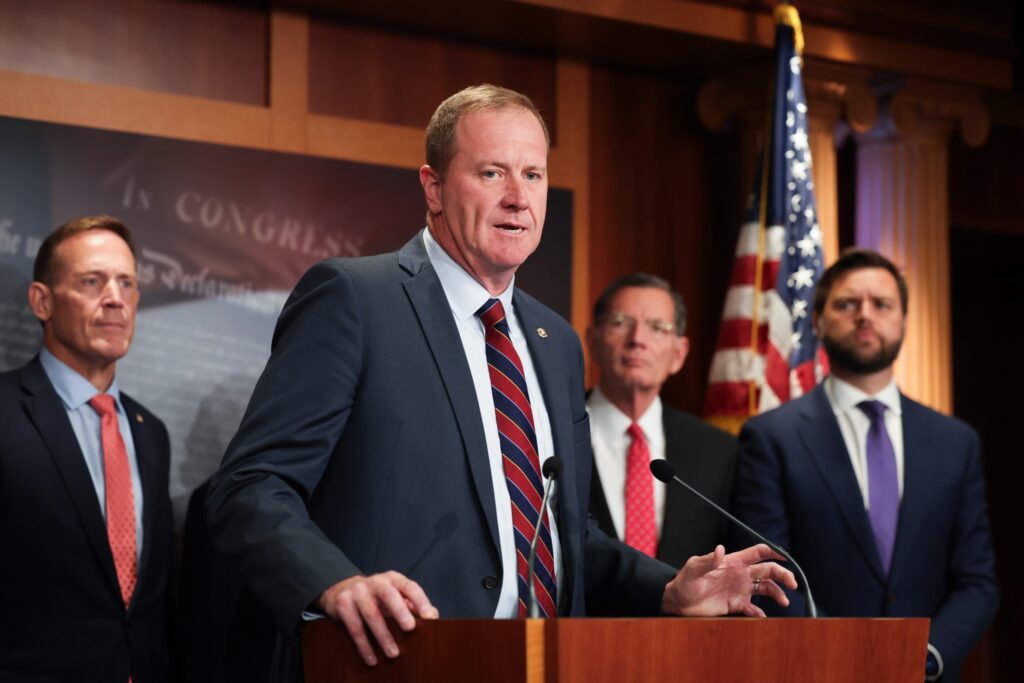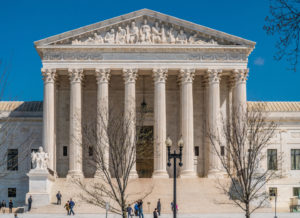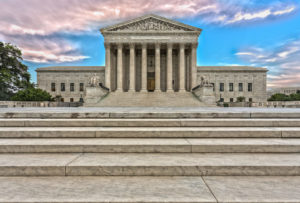Here’s the key to preserving free speech, according to the man who filed the ‘most important’ such case in US history
The Missouri-launched “most important free speech case in the history of our country” was just argued in the U.S. Supreme Court on Monday.
But even with a victory in the case later this year,…

The Missouri-launched “most important free speech case in the history of our country” was just argued in the U.S. Supreme Court on Monday.
But even with a victory in the case later this year, the man who filed the lawsuit to stop Biden administration censorship of conservatives says we still have a long way to go to preserve this nation’s birthright of freedom of speech.
U.S. Sen. Eric Schmitt, who filed the case along with his counterpart in Louisiana while he was Missouri attorney general, says he’d love a unanimous high court ruling in Murthy v. Missouri, originally captioned Missouri v. Biden. But that may not be in the cards, after Justice Ketanji Brown Jackson infamously worried during oral arguments that the case might result in “the First Amendment hamstringing the federal government.”
“Yeah, well, that is exactly the point [of the First Amendment],” Schmitt said in an exclusive interview with The Lion Thursday, echoing a firestorm of derision at her comment. “The government’s effort to suppress information and viewpoints is supposed to be limited and constrained and prohibited by the First Amendment. It’s entirely the point of the First Amendment of our Constitution, because our Founders knew that government tries to consolidate power and quell dissent and crush dissent.
“That’s one of the reasons why America is a unique place in human history, because we believe individuals have a right to express themselves and the government isn’t the arbiter of what the truth is. We as individuals are entitled to speak our minds and hear other people’s opinions.”
As for Justice Jackson’s comment Schmitt said, “I do think it is revealing of a mindset on the left – that the government should have an outsized role in people’s lives.”
One appeals attorney not associated with the case told The Lion that the plaintiffs on the side of free speech “were crushed” by the government’s side in Monday’s oral arguments. But Schmitt cautions not to read much into the oral arguments, and says he’s “hopeful” for a win in the case.
“I think it’s tricky, and often a fool’s errand, to try to glean too much into the questions that are asked [by the justices] in oral arguments. The truth of the matter is, these cases are decided [by] the records and the briefs that are submitted.
“And the untold story here is that when I was AG, we were able to get discovery before the preliminary injunction hearing – meaning we took the depositions of Elvis Chan, the FBI agent who was pre-bunking the Hunter Biden laptop story; we took the deposition of Anthony Fauci, who lied to the American people time and time again; and all the emails and text messages that were exchanged where the government actors were basically threatening social media companies to take down disfavored speech.
“When the court sees all of that, and when that’s all laid out as they make the decision, my hope is that they’ll view it the same way two other courts have already ruled.”
In particular, Schmitt dismissed the government’s justification for COVID-era censorship of conservatives opposing lockdowns and mandatory vaccines: that “this was a once-in-a-lifetime kind of pandemic.”
“Well, that’s an excuse that’s been used throughout time to aggregate power and crush dissent,” Schmitt says. “There’s nothing new about that. That’s what dictators and tyrants say all over the world, including today.
“I think if we care about the First Amendment, this case stands for a very important proposition that the government can’t censor speech and it can’t outsource that to social media companies either.”
Still, even while hopeful that the high court will side with the plaintiffs as a district judge and the U.S. 5th Circuit Court of Appeals both did, Schmitt knows the battle for free speech still wouldn’t be over.
Indeed, The Lion noted to him that a 2022 poll found a large majority of U.S. teens – 62% – think it’s more important for people to feel “welcome and safe online” than to be able to speak freely.
Why is censorship so widely accepted today? Schmitt offers two reasons: the left’s insatiable desire for power, and a lack of civics education.
It’s the latter that is the key to preserving free speech in America, he argues.
“For the left, it’s all about power and control, right? And they’re willing to sort of bulldoze any rules or norms or law or constitution to get their way – which is to exercise power and control. That’s one piece, I think.
“The other piece, which is something that I do think collectively we have to focus on, is a reintroduction of civics education so that people understand why [free speech] is so important, they understand the nature of our founding, what the American idea is, why we’re exceptional. Because, we’re an exception in the way the world has always sort of worked – where we don’t believe our power came from a king or queen, but it came from God; individually our rights come from God. And that government’s role is to protect those rights.
“We have a system of federalism where the federal government was granted limited powers and the rest were retained by the states. I think if you put that into focus, if you put what America is in the context of history and how important this experiment is of self-government, I do think it heightens the debate and it probably addresses some of the concerns that you’ve raised.
“But we need to focus on civics education and not this kind of DEI or CRT indoctrination that you see being pushed by those on the left.”
Before Monday’s historic oral arguments, Schmitt had told The Lion the case is “the most important free speech case in the history of our country. You had a weaponized federal government, a vast censorship enterprise, coercing and colluding with the biggest companies in the history of the world, these Big Tech giants that suppress speech. And it’s a scary proposition.
“It’s Orwellian. It’s been proven in that lawsuit.”
Yet, even before the high court’s ruling in the case, expected by June, Schmitt is optimistic – because he feels the point has been made.
“I do think regardless of how it comes out – and again, I’m hopeful on the win, because we’ve been successful before – this case has exposed a vast censorship enterprise.”



